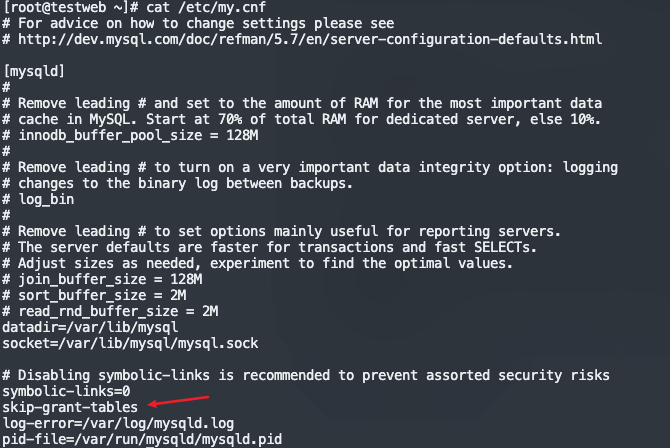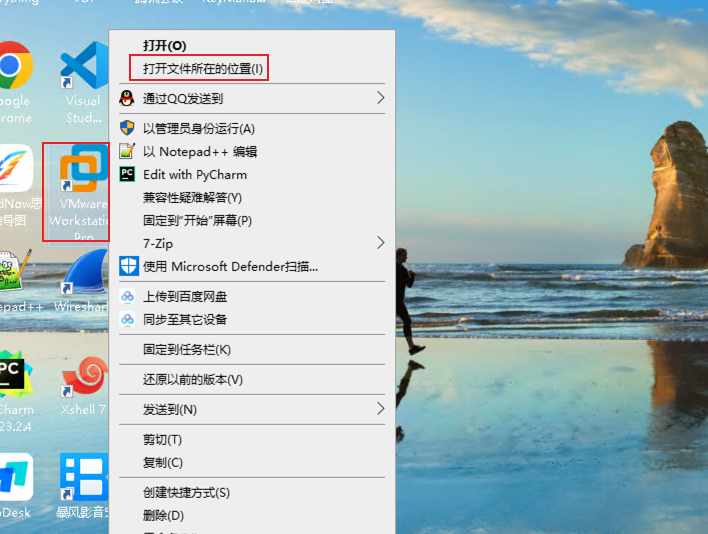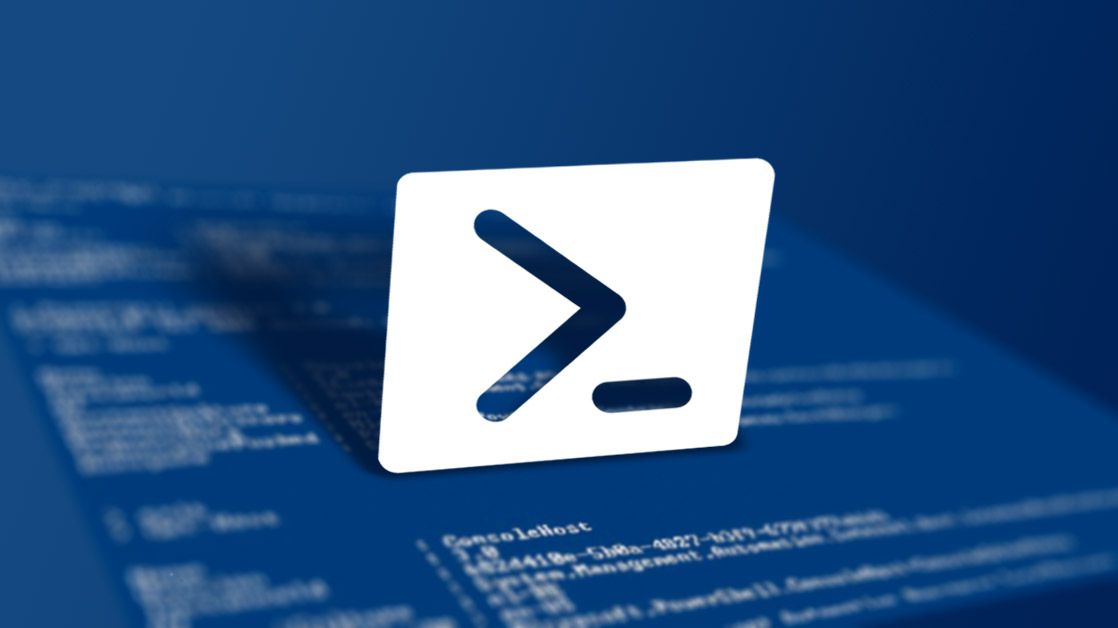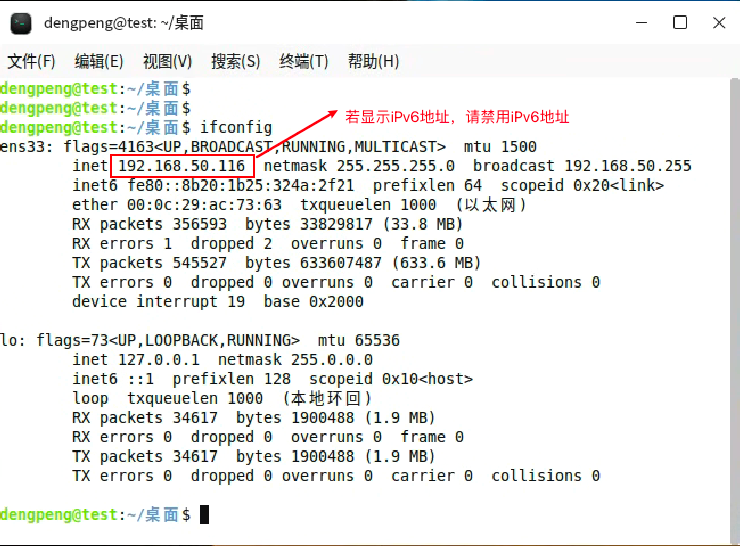群晖DSM7.2.2安装videso Station方法
前置准备条件
系统版本为DSM 7.2.2版本。
群辉系统需要开启SSH端口访问。
SSH连接工具,连接到群辉。
videso Station安装脚本。
直接附上代码,请把代码复制到文本里面。然后再群辉上面通过bash命令运行文件进行安装。
#!/usr/bin/env bash
#------------------------------------------------------------------------------
# https://www.synology.com/en-au/releaseNote/VideoStation
# https://www.synology.com/en-au/releaseNote/CodecPack
# https://www.synology.com/en-au/releaseNote/DSM
#
# Video Station does not support TrueHD or DTS audio.
# Video Station does not decode AAC audio.
#------------------------------------------------------------------------------
# https://archive.synology.com/download/Package
# https://web.archive.org/web/20240825163306/https://archive.synology.com/download/Package
#------------------------------------------------------------------------------
# To get Video Station to work I needed to install an older version of AME...
# which means Drive and Surveillance Station may not work
# (unless I install older versions of them).
#------------------------------------------------------------------------------
# I've seen evidence of:
# VideoStation="3.2.0-3173" (when you try to manually install 3.1.1)
# CodecPack="4.0.0-4003"
# It looks like Synology were developing a new video station for DSM 7.2.2
# before someone decided to scrap it and cannibalise AME to save a few dollars
#------------------------------------------------------------------------------
# TODO
# Figure out how to install already downloaded package to specific volume
# Figure out where package center saves it's settings
# Figure out how to run VideoStation 3.1.1-3168 with CodecPack 3.1.0-3005
# or add OpenSubtitle changes from 3.1.1-3168 to 3.1.0-3153
#------------------------------------------------------------------------------
scriptver="v1.3.13"
script=Video_Station_for_DSM_722
repo="007revad/Video_Station_for_DSM_722"
scriptname=videostation_for_722
# Shell Colors
#Black='\e[0;30m' # ${Black}
#Red='\e[0;31m' # ${Red}
#Green='\e[0;32m' # ${Green}
#Yellow='\e[0;33m' # ${Yellow}
#Blue='\e[0;34m' # ${Blue}
#Purple='\e[0;35m' # ${Purple}
Cyan='\e[0;36m' # ${Cyan}
#White='\e[0;37m' # ${White}
Error='\e[41m' # ${Error}
Off='\e[0m' # ${Off}
ding(){
printf \\a
}
if [[ $1 == "--trace" ]] || [[ $1 == "-t" ]]; then
trace="yes"
fi
# Check script is running as root
if [[ $( whoami ) != "root" ]]; then
ding
echo -e "${Error}ERROR${Off} This script must be run as sudo or root!"
exit 1 # Not running as sudo or root
fi
# Get NAS model
model=$(cat /proc/sys/kernel/syno_hw_version)
#modelname="$model"
# Show script version
#echo -e "$script $scriptver\ngithub.com/$repo\n"
echo "$script $scriptver"
# Get DSM full version
productversion=$(/usr/syno/bin/synogetkeyvalue /etc.defaults/VERSION productversion)
buildphase=$(/usr/syno/bin/synogetkeyvalue /etc.defaults/VERSION buildphase)
buildnumber=$(/usr/syno/bin/synogetkeyvalue /etc.defaults/VERSION buildnumber)
smallfixnumber=$(/usr/syno/bin/synogetkeyvalue /etc.defaults/VERSION smallfixnumber)
# Get CPU arch and family
arch="$(uname -m)"
family=$(/usr/syno/bin/synogetkeyvalue /etc.defaults/synoinfo.conf platform_name)
# Show DSM full version and model
if [[ $buildphase == GM ]]; then buildphase=""; fi
if [[ $smallfixnumber -gt "0" ]]; then smallfix="-$smallfixnumber"; fi
echo "$model DSM $productversion-$buildnumber$smallfix $buildphase"
# Show CPU arch and family
echo "CPU $family $arch"
#------------------------------------------------------------------------------
# Check latest release with GitHub API
# Save options used
args=("$@")
# Get latest release info
# Curl timeout options:
# https://unix.stackexchange.com/questions/94604/does-curl-have-a-timeout
release=$(curl --silent --connect-timeout 30 \
"https://api.github.com/repos/$repo/releases/latest")
# Release version
tag=$(echo "$release" | grep '"tag_name":' | sed -E 's/.*"([^"]+)".*/\1/')
shorttag="${tag:1}"
# Get script location
# https://stackoverflow.com/questions/59895/
source=${BASH_SOURCE[0]}
while [ -L "$source" ]; do # Resolve $source until the file is no longer a symlink
scriptpath=$( cd -P "$( dirname "$source" )" >/dev/null 2>&1 && pwd )
source=$(readlink "$source")
# If $source was a relative symlink, we need to resolve it
# relative to the path where the symlink file was located
[[ $source != /* ]] && source=$scriptpath/$source
done
scriptpath=$( cd -P "$( dirname "$source" )" >/dev/null 2>&1 && pwd )
scriptfile=$( basename -- "$source" )
echo "Running from: ${scriptpath}/$scriptfile"
#echo "Script location: $scriptpath" # debug
#echo "Source: $source" # debug
#echo "Script filename: $scriptfile" # debug
#echo "tag: $tag" # debug
#echo "scriptver: $scriptver" # debug
cleanup_tmp(){
# Delete downloaded .tar.gz file
if [[ -f "/tmp/$script-$shorttag.tar.gz" ]]; then
if ! rm "/tmp/$script-$shorttag.tar.gz"; then
echo -e "${Error}ERROR${Off} Failed to delete"\
"downloaded /tmp/$script-$shorttag.tar.gz!" >&2
fi
fi
# Delete extracted tmp files
if [[ -d "/tmp/$script-$shorttag" ]]; then
if ! rm -r "/tmp/$script-$shorttag"; then
echo -e "${Error}ERROR${Off} Failed to delete"\
"downloaded /tmp/$script-$shorttag!" >&2
fi
fi
}
if ! printf "%s\n%s\n" "$tag" "$scriptver" |
sort --check=quiet --version-sort >/dev/null ; then
echo -e "\n${Cyan}There is a newer version of this script available.${Off}"
echo -e "Current version: ${scriptver}\nLatest version: $tag"
scriptdl="$scriptpath/$script-$shorttag"
if [[ -f ${scriptdl}.tar.gz ]] || [[ -f ${scriptdl}.zip ]]; then
# They have the latest version tar.gz downloaded but are using older version
echo "You have the latest version downloaded but are using an older version"
sleep 10
elif [[ -d $scriptdl ]]; then
# They have the latest version extracted but are using older version
echo "You have the latest version extracted but are using an older version"
sleep 10
else
echo -e "${Cyan}Do you want to download $tag now?${Off} [y/n]"
read -r -t 30 reply
if [[ ${reply,,} == "y" ]]; then
# Delete previously downloaded .tar.gz file and extracted tmp files
cleanup_tmp
if cd /tmp; then
url="https://github.com/$repo/archive/refs/tags/$tag.tar.gz"
if ! curl -JLO -m 30 --connect-timeout 5 "$url"; then
echo -e "${Error}ERROR${Off} Failed to download"\
"$script-$shorttag.tar.gz!"
else
if [[ -f /tmp/$script-$shorttag.tar.gz ]]; then
# Extract tar file to /tmp/<script-name>
if ! tar -xf "/tmp/$script-$shorttag.tar.gz" -C "/tmp"; then
echo -e "${Error}ERROR${Off} Failed to"\
"extract $script-$shorttag.tar.gz!"
else
# Set script sh files as executable
if ! chmod a+x "/tmp/$script-$shorttag/"*.sh ; then
permerr=1
echo -e "${Error}ERROR${Off} Failed to set executable permissions"
fi
# Copy new script sh file to script location
if ! cp -p "/tmp/$script-$shorttag/${scriptname}.sh" "${scriptpath}/${scriptfile}";
then
copyerr=1
echo -e "${Error}ERROR${Off} Failed to copy"\
"$script-$shorttag sh file(s) to:\n $scriptpath/${scriptfile}"
fi
# Copy new CHANGES.txt file to script location (if script on a volume)
if [[ $scriptpath =~ /volume* ]]; then
# Set permissions on CHANGES.txt
if ! chmod 664 "/tmp/$script-$shorttag/CHANGES.txt"; then
permerr=1
echo -e "${Error}ERROR${Off} Failed to set permissions on:"
echo "$scriptpath/CHANGES.txt"
fi
# Copy new CHANGES.txt file to script location
if ! cp -p "/tmp/$script-$shorttag/CHANGES.txt"\
"${scriptpath}/${scriptname}_CHANGES.txt";
then
echo -e "${Error}ERROR${Off} Failed to copy"\
"$script-$shorttag/CHANGES.txt to:\n $scriptpath"
else
changestxt=" and changes.txt"
fi
fi
# Delete downloaded tmp files
cleanup_tmp
# Notify of success (if there were no errors)
if [[ $copyerr != 1 ]] && [[ $permerr != 1 ]]; then
echo -e "\n$tag ${scriptfile}$changestxt downloaded to: ${scriptpath}\n"
# Reload script
printf -- '-%.0s' {1..79}; echo # print 79 -
exec "${scriptpath}/$scriptfile" "${args[@]}"
fi
fi
else
echo -e "${Error}ERROR${Off}"\
"/tmp/$script-$shorttag.tar.gz not found!"
#ls /tmp | grep "$script" # debug
fi
fi
cd "$scriptpath" || echo -e "${Error}ERROR${Off} Failed to cd to script location!"
else
echo -e "${Error}ERROR${Off} Failed to cd to /tmp!"
fi
fi
fi
fi
#------------------------------------------------------------------------------
# Check script is needed
if [[ $buildnumber -lt "72803" ]]; then
echo -e "\nYour DSM version does not need this script"
exit
fi
# Check model is supported
spks_list=("armada37xx" "armada38x" "armv7" "monaco" "rtd1296" "rtd1619b" "x86_64")
if [[ ${spks_list[*]} =~ $arch ]]; then
cputype="$arch"
elif [[ ${spks_list[*]} =~ $family ]]; then
cputype="$family"
else
echo -e "\nUnsupported or unknown CPU family or architecture"
exit
fi
echo "Using CPU type: $cputype"
#------------------------------------------------------------------------------
cleanup(){
arg1=$?
for s in /tmp/CodecPack-"${cputype}"-*.spk; do rm -f "$s"; done
for s in /tmp/VideoStation-"${cputype}"-*.spk; do rm -f "$s"; done
for s in /tmp/MediaServer-"${cputype}"-*.spk; do rm -f "$s"; done
exit "${arg1}"
}
trap cleanup EXIT
progbar(){
# $1 is pid of process
# $2 is string to echo
string="$2"
local dots
local progress
dots=""
while [[ -d /proc/$1 ]]; do
dots="${dots}."
progress="$dots"
if [[ ${#dots} -gt "10" ]]; then
dots=""
progress=" "
fi
echo -ne " ${2}$progress\r"; sleep 0.3
done
}
progstatus(){
# $1 is return status of process
# $2 is string to echo
# $3 line number function was called from
local tracestring
local pad
tracestring="${FUNCNAME[0]} called from ${FUNCNAME[1]} $3"
pad=$(printf -- ' %.0s' {1..80})
[ "$trace" == "yes" ] && printf '%.*s' 80 "${tracestring}${pad}" && echo ""
if [[ $1 == "0" ]]; then
echo -e "$2 "
else
ding
echo -e "Line ${LINENO}: ${Error}ERROR${Off} $2 failed!"
echo "$tracestring"
if [[ $exitonerror != "no" ]]; then
exit 1 # Skip exit if exitonerror != no
fi
fi
exitonerror=""
#echo "return: $1" # debug
}
package_status(){
# $1 is package name
[ "$trace" == "yes" ] && echo "${FUNCNAME[0]} called from ${FUNCNAME[1]}"
/usr/syno/bin/synopkg status "${1}" >/dev/null
code="$?"
# DSM 7.2 0 = started, 17 = stopped, 255 = not_installed, 150 = broken
# DSM 6 to 7.1 0 = started, 3 = stopped, 4 = not_installed, 150 = broken
if [[ $code == "0" ]]; then
#echo "$1 is started" # debug
return 0
elif [[ $code == "17" ]] || [[ $code == "3" ]]; then
#echo "$1 is stopped" # debug
return 1
elif [[ $code == "255" ]] || [[ $code == "4" ]]; then
#echo "$1 is not installed" # debug
return 255
elif [[ $code == "150" ]]; then
#echo "$1 is broken" # debug
return 150
else
return "$code"
fi
}
check_pkg_installed(){
# $1 is package
[ "$trace" == "yes" ] && echo "${FUNCNAME[0]} called from ${FUNCNAME[1]}"
/usr/syno/bin/synopkg status "${1:?}" >/dev/null
code="$?"
if [[ $code == "255" ]] || [[ $code == "4" ]]; then
return 1
else
return 0
fi
}
package_is_running(){
# $1 is package name
[ "$trace" == "yes" ] && echo "${FUNCNAME[0]} called from ${FUNCNAME[1]}"
/usr/syno/bin/synopkg is_onoff "${1}" >/dev/null
code="$?"
return "$code"
}
wait_status(){
# Wait for package to finish stopping or starting
# $1 is package
# $2 is start or stop
[ "$trace" == "yes" ] && echo "${FUNCNAME[0]} called from ${FUNCNAME[1]}"
local num
if [[ $2 == "start" ]]; then
state="0"
elif [[ $2 == "stop" ]]; then
state="1"
fi
if [[ $state == "0" ]] || [[ $state == "1" ]]; then
num="0"
package_status "$1"
while [[ $? != "$state" ]]; do
sleep 1
num=$((num +1))
if [[ $num -gt "20" ]]; then
break
fi
package_status "$1"
done
fi
}
package_stop(){
# $1 is package name
# $2 is package display name
[ "$trace" == "yes" ] && echo "${FUNCNAME[0]} called from ${FUNCNAME[1]}"
timeout 5.0m /usr/syno/bin/synopkg stop "$1" >/dev/null &
pid=$!
#string="Stopping ${Cyan}${2}${Off}"
string="Stopping ${2}"
progbar "$pid" "$string"
wait "$pid"
progstatus "$?" "$string" "line ${LINENO}"
# Allow package processes to finish stopping
wait_status "$1" stop
}
package_start(){
# $1 is package name
# $2 is package display name
[ "$trace" == "yes" ] && echo "${FUNCNAME[0]} called from ${FUNCNAME[1]}"
timeout 5.0m /usr/syno/bin/synopkg start "$1" >/dev/null &
pid=$!
#string="Starting ${Cyan}${2}${Off}"
string="Starting ${2}"
progbar "$pid" "$string"
wait "$pid"
progstatus "$?" "$string" "line ${LINENO}"
# Allow package processes to finish starting
wait_status "$1" start
}
package_uninstall(){
# $1 is package name
# $2 is package display name
[ "$trace" == "yes" ] && echo "${FUNCNAME[0]} called from ${FUNCNAME[1]}"
/usr/syno/bin/synopkg uninstall "$1" >/dev/null &
pid=$!
string="Uninstalling ${Cyan}${2}${Off}"
progbar "$pid" "$string"
wait "$pid"
progstatus "$?" "$string" "line ${LINENO}"
}
package_install(){
# $1 is package filename
# $2 is package display name
# $3 is /volume2 etc
[ "$trace" == "yes" ] && echo "${FUNCNAME[0]} called from ${FUNCNAME[1]}"
#/usr/syno/bin/synopkg install_from_server "$1" "$3" >/dev/null &
/usr/syno/bin/synopkg install "/tmp/$1" "$3" >/dev/null &
pid=$!
if [[ $3 ]]; then
string="Installing ${Cyan}${2}${Off} on ${Cyan}$3${Off}"
else
string="Installing ${Cyan}${2}${Off}"
fi
progbar "$pid" "$string"
wait "$pid"
progstatus "$?" "$string" "line ${LINENO}"
}
download_pkg(){
# $1 is the package folder name
# $2 is the package version to download
# $3 is the package file to download
local url
language=$(synogetkeyvalue /etc/synoinfo.conf language)
if [[ $language =~ chs|cht ]] && readlink -q /etc/localtime | grep -iq china;
then
# Use China only download site
base="https://cndl.synology.cn/download/Package/spk/"
else
base="https://global.synologydownload.com/download/Package/spk/"
# base2 currently unused
base2="https://global.download.synology.com/download/Package/spk/"
fi
if [[ ! -f "/tmp/${3:?}" ]]; then
url="${base}${1:?}/${2:?}/${3:?}"
echo -e "\nDownloading ${Cyan}${3}${Off}"
if ! curl -kL --connect-timeout 30 "$url" -o "/tmp/$3"; then
ding
echo -e "${Error}ERROR 2${Off} Failed to download ${3}!"
exit 2
fi
fi
if [[ ! -f "/tmp/${3:?}" ]]; then
ding
echo -e "${Error}ERROR 3${Off} Failed to download ${3}!"
exit 3
else
echo ""
fi
}
# Only install the packages the user wants
echo ""
PS3="Select package(s) to install: "
options=("Install All" "Only Advanced Media Codecs" "Skip Video Station" "Skip Media Server")
TMOUT=5 # Timeout and install all if no choice made within 5 seconds (for task scheduler)
select choice in "${options[@]}"; do
case "$choice" in
"Install All")
break
;;
"Skip Video Station")
no_vs="yes"
break
;;
"Skip Media Server")
no_ms="yes"
break
;;
"Only Advanced Media Codecs")
no_vs="yes"
no_ms="yes"
break
;;
"")
echo "Invalid Choice!"
;;
*)
break
;;
esac
done
unset TMOUT
if [[ -z "$choice" ]]; then
echo "No selection made. Installing all packages."
else
echo -e "You selected: ${Cyan}$choice${Off}"
fi
# Backup synopackageslimit.conf if needed
if [[ ! -f /etc.defaults/synopackageslimit.conf.bak ]]; then
cp -p /etc.defaults/synopackageslimit.conf /etc.defaults/synopackageslimit.conf.bak
fi
# Make DSM let us install the packages we want
/usr/syno/bin/synosetkeyvalue /etc.defaults/synopackageslimit.conf VideoStation "3.1.0-3153"
/usr/syno/bin/synosetkeyvalue /etc/synopackageslimit.conf VideoStation "3.1.0-3153"
/usr/syno/bin/synosetkeyvalue /etc.defaults/synopackageslimit.conf CodecPack "3.1.0-3005"
/usr/syno/bin/synosetkeyvalue /etc/synopackageslimit.conf CodecPack "3.1.0-3005"
/usr/syno/bin/synosetkeyvalue /etc.defaults/synopackageslimit.conf MediaServer "2.1.0-3304"
/usr/syno/bin/synosetkeyvalue /etc/synopackageslimit.conf MediaServer "2.1.0-3304"
# Get installed AME version
ame_version=$(/usr/syno/bin/synopkg version CodecPack)
if [[ ${ame_version:0:1} -gt "3" ]]; then
# Uninstall AME v4
echo ""
package_uninstall CodecPack "Advanced Media Extensions"
fi
# Get installed VideoStation version
if [[ $no_vs != "yes" ]]; then
vs_version=$(/usr/syno/bin/synopkg version VideoStation)
if check_pkg_installed VideoStation && [[ ${vs_version:0:2} != "30" ]]; then
# Uninstall VideoStation (wrong version)
echo ""
package_uninstall VideoStation "Video Station"
fi
fi
# CodecPack (Advanced Media Extensions)
if ! check_pkg_installed CodecPack && [[ $ame_version != "30.1.0-3005" ]]; then
download_pkg CodecPack "3.1.0-3005" "CodecPack-${cputype}-3.1.0-3005.spk"
package_install "CodecPack-${cputype}-3.1.0-3005.spk" "Advanced Media Extensions"
package_stop CodecPack "Advanced Media Extensions"
# Prevent package updating and "update available" messages
echo "Preventing Advanced Media Extensions from auto updating"
/usr/syno/bin/synosetkeyvalue /var/packages/CodecPack/INFO version "30.1.0-3005"
package_start CodecPack "Advanced Media Extensions"
rm -f "/tmp/CodecPack-${cputype}-3.1.0-3005.spk"
else
echo -e "\n${Cyan}Advanced Media Extensions${Off} already installed"
fi
# VideoStation
if [[ $no_vs != "yes" ]]; then
if ! check_pkg_installed VideoStation && [[ $vs_version != "30.1.0-3153" ]]; then
#download_pkg VideoStation "3.1.1-3168" "VideoStation-${cputype}-3.1.0-3168.spk"
download_pkg VideoStation "3.1.0-3153" "VideoStation-${cputype}-3.1.0-3153.spk"
#package_install "VideoStation-${cputype}-3.1.1-3168.spk" "Video Station"
package_install "VideoStation-${cputype}-3.1.0-3153.spk" "Video Station"
package_stop VideoStation "Video Station"
# Prevent package updating and "update available" messages
echo "Preventing Video Station from auto updating"
#/usr/syno/bin/synosetkeyvalue /var/packages/VideoStation/INFO version "30.1.1-3168"
/usr/syno/bin/synosetkeyvalue /var/packages/VideoStation/INFO version "30.1.0-3153"
package_start VideoStation "Video Station"
#rm -f "/tmp/VideoStation-${cputype}-3.1.0-3168.spk"
rm -f "/tmp/VideoStation-${cputype}-3.1.0-3153.spk"
else
echo -e "\n${Cyan}Video Station${Off} already installed"
fi
fi
# MediaServer
if [[ $no_ms != "yes" ]]; then
if ! check_pkg_installed MediaServer && [[ $ame_version != "20.1.0-3304" ]]; then
download_pkg MediaServer "2.1.0-3304" "MediaServer-${cputype}-2.1.0-3304.spk"
package_install "MediaServer-${cputype}-2.1.0-3304.spk" "Media Server"
package_stop MediaServer "Media Server"
# Prevent package updating and "update available" messages
echo "Preventing Media Server from auto updating"
/usr/syno/bin/synosetkeyvalue /var/packages/MediaServer/INFO version "20.1.0-3304"
package_start MediaServer "Media Server"
rm -f "/tmp/MediaServer-${cputype}-2.1.0-3304.spk"
else
echo -e "\n${Cyan}Media Server${Off} already installed"
fi
fi
# Start packages if needed (i.e. after DSM update)
if check_pkg_installed CodecPack; then
if ! package_is_running CodecPack; then
package_start CodecPack "Advanced Media Extensions"
fi
fi
if check_pkg_installed VideoStation; then
if ! package_is_running VideoStation; then
package_start VideoStation "Video Station"
fi
fi
if check_pkg_installed MediaServer; then
if ! package_is_running MediaServer; then
package_start MediaServer "Media Server"
fi
fi
echo -e "\nFinished :)"
echo -e "\nTo enable HEVC decoding:"
echo " 1. Open Package Center > Installed"
echo " 2. Click Advanced Media Extensions"
echo " 3. Click on Open"
echo -e " 4. Click on Install then OK \n"如下为当前系统版本

如下为开启SSH访问。

如下为群辉7.2.2版本已完成videso Station安装。





